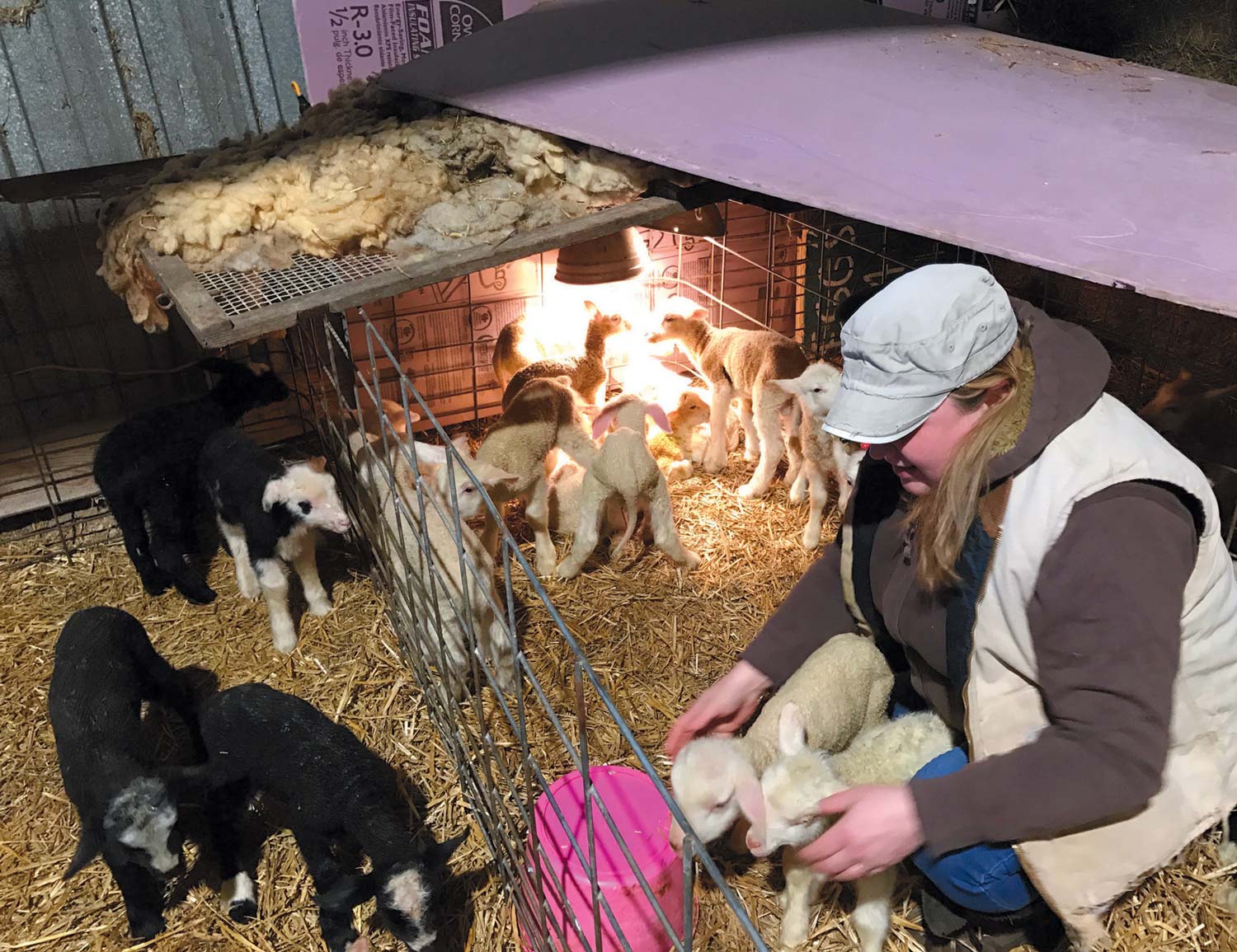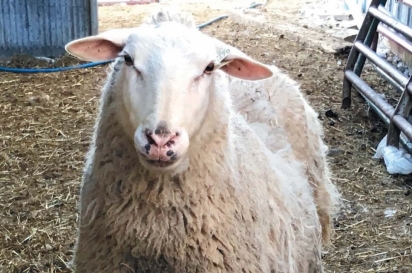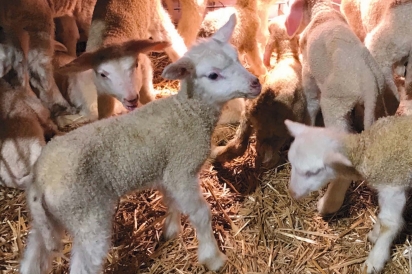Sheep Dairy Reflects Area’s Expanding Agriculture Aided By NWTC’s Farm Assistance Program
Jenny DeJardin carves a slice of Gorgonzola cheese and offers it to her guest. It has the tangy, crumbly taste familiar to salad and cheese lovers everywhere.
“OK, now try this,” DeJardin says, slicing a piece of BelGioioso Gorgonzola Cow & Sheep Milk Cheese. The difference is subtle but striking. Even though the mix includes just 2 percent sheep milk, the cheese has all the richness of the other gorgonzola but the taste is creamier and somewhat sweeter. To wash it down, she offers a cup of sheep milk. It tastes just like cow’s milk, only better – again, creamier, sweeter.
DeJardin and her husband, Josh, are operators of Lamb of God Farm east of Dyckesville, one of only about 20 dairy sheep farms in Wisconsin and the only one for 100 miles. Josh comes from generations of dairy farmers. His family has been raising and milking cows in Northeast Wisconsin’s Belgian Country for more than 100 years.
So why a sheep dairy?
Most of the sheep cheese available in North America is imported from Europe, where the world’s commercial dairy sheep industry has been concentrated for centuries.
According to the website sheep101.info, sheep milk is richer in vitamins A, B and E, calcium, phosphorus, potassium and magnesium than cow’s milk. It is easier to digest and an even better alternative than goat’s milk for lactose-intolerant people.
It’s the sheep milk that lends the unique flavor to imported feta, ricotta and Roquefort cheese. Sheep milk has a higher solids content than goat or cow milk, and therefore a gallon of sheep milk will yield 18 to 25 percent cheese where goat or cow milk yields 9-10 percent.
Sheep milk is naturally homogenized – it never separates – and has a higher butter content (9.5 percent vs. a cow’s 3.5 percent). Yes, but why sheep dairy? Why buck generations of DeJardin family tradition? “He wanted to try something different,” Jenny said. “He doesn’t like to do what everybody else does.” For example, their livestock includes various peacocks.
About three years ago he inquired with a number of local cheese companies whether they would be interested in goat milk. BelGioioso replied, essentially, “No, we don’t do goats, but if you do sheep we’ll buy that milk,” she said.
And the path was set.
The couple heard that a sheep farmer about 20 miles away was retiring; he had built up the industry and had himself transitioned from cows, and they looked into buying his property. Someone else purchased the farm but sold them the sheep and equipment. Over the next two months they worked hard to convert an empty machine shed into a dairy.
On moving day they had 12 hours to install the equipment and move the whole operation in. A crew from Total Dairy Service worked from 6 a.m. to around 11 p.m. At the end of the night they had an operational 30-foot milking parlor. “It was a crazy 24 hours,” Jenny said. “We were up the next morning milking.”
The DeJardins had to learn about sheep, in part using out-of-print textbooks and materials from Europe, and in part via Northeast Wisconsin Technical College in Green Bay, where Doug Sutter is an instructor in farm business and production management. Sutter said Jennifer is one of his more memorable students because of her curiosity and drive to learn in a niche market. The program aims to instill the skills needed to compete and be profitable in the ever-changing agricultural economy. Graduates are prepared to own and operate or be employed on today’s modern farms.
Jenny is on the board of the newly formed Wisconsin Sheep Dairy Association.
“We went in not knowing what to expect,” she said. “As a
group we’re trying to make (sheep dairy) more visible.”
Although opening a sheep dairy presents its share of challenges, opening it in America’s Dairyland provides an advantage.
“It’s Wisconsin,” she said. “We know our cheese has good quality.”
“California may have happy cows, but our milk has the components and character,” Sutter said.
What’s ahead? Jenny has started the arduous 18-month task of becoming certified as a cheesemaker.
“We want to put up a mini cheese factory so we can bring products to farmers markets around the area,” she said. They’re hoping that will help fill the slow times in between seasons.
Products featuring their sheep milk are already making the markets – Cranky Hermit Products of Pulaski makes its “Soap with a Wool Sweater” using local ingredients that include sheep milk. The bar of soap is wrapped in wool to provide the soap and “wash cloth” together.







